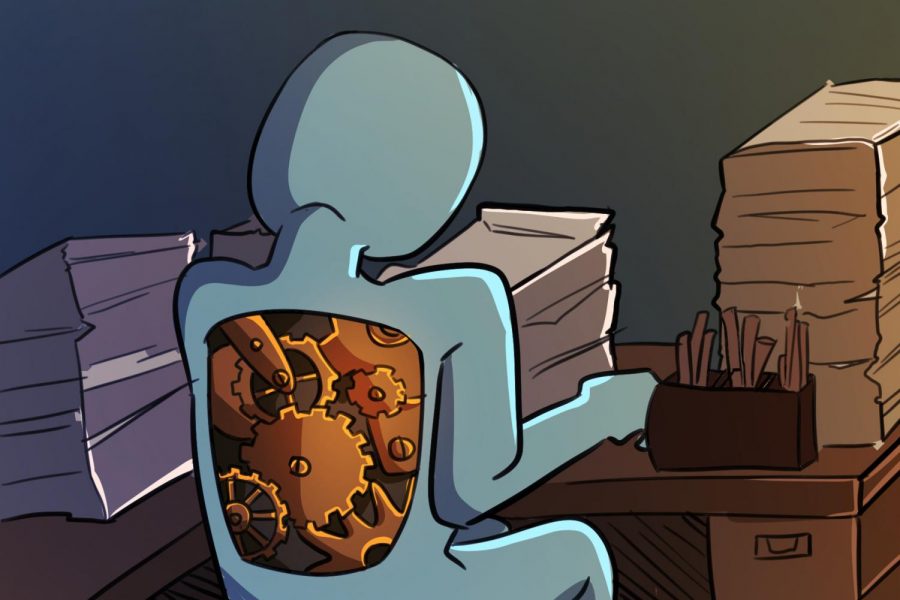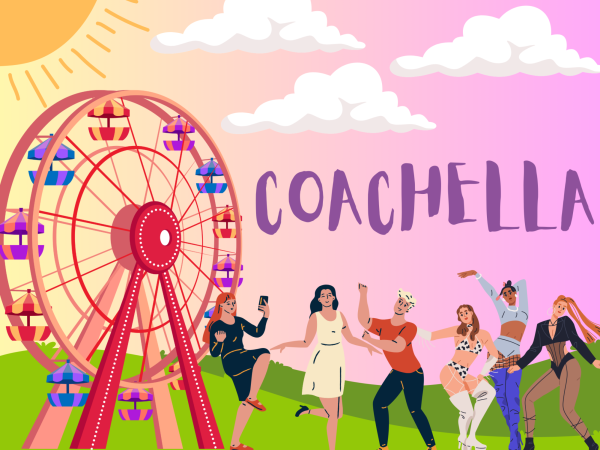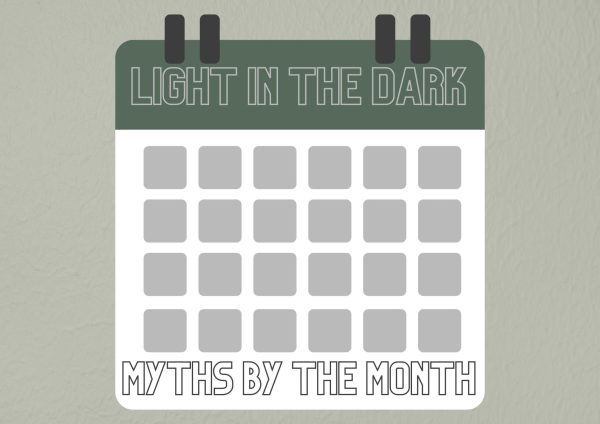Overwork doesn’t work
My fall semester went nothing like I planned it to. I thought being a senior meant I would be coasting through the year, and that I would finally get to focus on what I’m truly passionate about. Instead, I found myself ankle-deep in college applications, portfolio pieces, deadlines, newspaper responsibilities and classes. Before I knew it, I was once again sinking in a seemingly endless pile of work.
Overwork is something that plagues students and professionals. There are side effects to working hard: as one throws themself into their work at full force, the emotional and physical stress catches up. People can only handle so much before they are at full capacity and start sacrificing things such as sleep or health. In Japan, the culture of overwork is so severe that Karoshi (translating to death by overwork) has become a compensable disease. According to Tokyo Review, around 20% of employees in 2017 were working over 49 hours a week, and 191 deaths were chalked up to Karoshi.
In America, working hard has culminated into a phenomenon known as “hustle culture.” Despite reports of work being very stressful for 40% of employees according to the American Institute of Stress, the concept of Karoshi is not recognized like it is in Japan.
Being (over)productive is enforced by standards that start in high school. The hunger for immediate success pushes students to overachieve. For some students, including myself, the idea of college looming in the background compels us to do our best academically without any regard for what is being learned. It is expected that we be stressed out about things we do not really care about because that’s “just life.” To some extent, working toward something because of extrinsic motivation (grades) is necessary, but not when it impedes one’s well being or happiness. People are not machines, so it is unrealistic to expect them to perform like one. Besides, even machines wear down too.
I recognized that I was overworked when my mental and physical health began to decline last semester. I kept pushing myself to do just a little bit more because it would all be “worth it” soon. The weariness of being burned out didn’t hit me until after I got through the semester. I could barely pick up my pen to draw because I had lost the motivation to even doodle, and keeping up with my responsibilities for the newspaper felt more like a chore than a passion. I spent a good month in an art block, and I gave up on learning to animate entirely despite making room in my schedule just for the class.
Because I was so focused on things I felt I had to do, I was burned out before I realized it, and I did not want to do things I loved to do anymore. I chastised myself for not doing more, even though I was too exhausted to do much of anything, feeding into this negative cycle built by overwork. I put all my self worth into how much I could accomplish in a period of time without considering that I am only human. I am still trying to get out of this self-deprecating cycle.
Sometimes it seems like life is going too fast, so take a minute to slow down and re-evaluate what really matters. It is difficult not to get caught up when that overwhelming list of things to do starts to form. It is OK to say no to opportunities and commitments, even enticing ones, and it is necessary to take a break once in a while. It is good to work hard, but it is essential to focus on things that bring satisfaction.

Senior Yasmin Haq is the editor-in-chief and this is her fourth year on staff. She dabbles in just about anything creative including writing, photography,...













